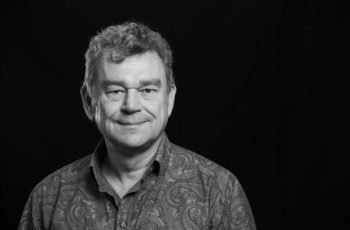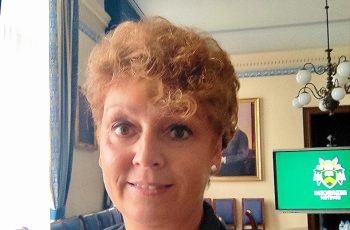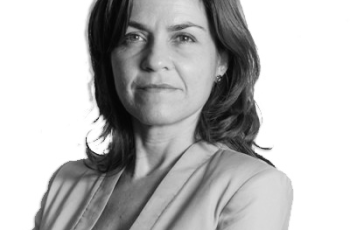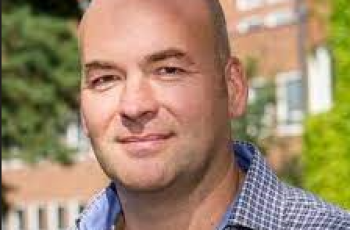In the faces of NeurotechEU series, several people in the NeurotechEU alliance are interviewed to learn about their experiences and insights.
Juana Gallar, a Professor of Physiology at the Institution of Neurosciences at the University Miguel Hernández, has held significant positions in academic and research management and is involved with various international scientific societies. She not only actively mentors young researchers but is also renowned for her passion, dedication, and unwavering support for the younger generation, serving as the ever-smiling driving force in shaping the future of NTEU. collaboration.

NeurotechEU should embrace diversity and be adaptable, like the brain, to meet the changing demands of our society.
Juana Gallar
How did you find yourself in neuroscience, which was not a usual choice for girls then?
A long time ago, during my second year of medical school, I encountered two types of teachers. Most reiterated what was in the books, but a few were true knowledge creators. Among them stood out Federico Pallardó, a professor at the University of Valencia. He worked with those pioneering the patch clamp technique, unravelling ion channel activity in neurons. This revelation inspired me to pursue a career in science. Though my desire to help people remained, the allure of discovery led me to a research career. Another significant figure in my life was the renowned neuroscientist, Carlos Belmonte, who guided my Ph.D. journey after completing my M.D. These neuroscience enthusiasts illuminated my path.
Did you feel any obstacle being a woman in a field mainly filled with men?
Being the only woman in a department of male physiologists in the early 1980s posed challenges, as the field and society at that time were not as diverse or open to women in scientific roles as it is today. Additionally, the societal expectations for women often included prioritizing family responsibilities over career pursuits, which was demanding for a woman pursuing a career in science.
However, I was fortunate to have contacts with prominent neuroscientists, like Nobel prize winner Rita Levi-Montalcini. She encouraged me to find happiness in my professional life. I took her advice and have always truly enjoyed my journey in neuroscience.
You investigate the mechanism of the brain. Why did you choose this particular topic?
It all began with my interest in preventing glaucoma, a condition linked to eye pressure. Vision is crucial for humans, and over half of our brain cortex handles visual input from the retinas. The eye’s proper function ensures this data reaches the brain. It relies on frontal pain receptors to safeguard itself. I delved into how surface eye nerves impact sensations and pain, contributing to preserving our vision. This led me to be captivated by the brain’s intricate processing of various signals—such as mechanical forces, temperature shifts, and chemicals—and how it translates them into electrical messages that govern our emotions and essential functions.
Isn’t pain dependent on gender, culture, or age? How do you combine these factors in pain measurement?
Measuring pain is complex, and there are no objective methods. Pain quantification relies on subjective reports. We’re working on tools to go beyond simple 0-10 scales. While we’ve created instruments like one for ocular pain, they still include the individual’s subjective experience. Pain is also influenced by culture, environment, age, and sex differences. People often say women have a lower pain threshold than men, but it’s not that simple. Take childbirth, for example. While women might feel pain with more minor triggers than men, the experience and process of pain is intricate and varies among individuals. It’s also influenced by cultural and societal factors, making it a fascinating field.
If you were not a neuroscientist, what kind of profession do you think you would enjoy?
I realized that I was very skilled as a surgeon when I was in medical school. So, most likely, I would be a cardiovascular or brain surgeon, but I would still consider a career in science.
Balancing family, a career, research, and teaching is a lot. How do you spend your free time?
I love reading, mainly traditional books. My collection’s a wide variety of genres, even science fiction. My collection of books is vast, and I enjoy learning from all of them.
Neuroscience is a fascinating and rapidly changing field. Why would you recommend it as a career?
While complex, neursocience offers vast opportunities for creating new knowledge. It explores the brain as an integral part of the whole body’s functioning, providing valuable insights into understanding humans. With an ageing society, neuroscience’s role in addressing conditions like Alzheimer’s and and other neurodegenerative diseases is crucial. We should explore both specifics and the broader context of neuroscience. It is essential to understand the interconnectedness of different aspects and their impact on behaviour and the nervous system.
What are your expectations for the future of NeurotechEU?
We need to build upon our phase one experiences. While we encouraged students to do a lot of work in the first phase, it’s time to give back to them, focusing on collaboration. Our primary focus is teamwork, unity, and pushing boundaries, creating novel opportunities for training and research. NeurotechEU should embrace diversity and be adaptable, like the brain, to meet the changing demands of our society.
Who would you prefer to read about in the exciting Faces of NeurotechEU?
I enjoy diverse topics and perspectives. I want to read about someone who can help us enhance the student experience. Giving students more for their investment is crucial, and working collaboratively as a team is vital.
By: Krisztina Csiba from the University of Debrecen










